Hi. Is anyone familiar with the Sewing Workshop Panel Pant pattern? I made a sample the other day and boy was the pant ever generous! I am only 5 feet tall and the pant had so much volume it looked like a clown pant. I really liked the construction and overall shape but would like some advice on how and where to reduce some of the volume without distorting the shape. Any tips? Thanks so much. Linda
Conversational Threads
Threads Insider
Get instant access to hundreds of videos, tutorials, projects, and more.
Start Your Free TrialAlready an Insider? Log in
Conversational Threads
Highlights
-
Sign up for the Threads eletter
This site is protected by reCAPTCHA and the Google Privacy Policy and Terms of Service apply.See all newsletters -
 Sponsored Content
Sponsored Content
Where to Buy
-

-

-

-

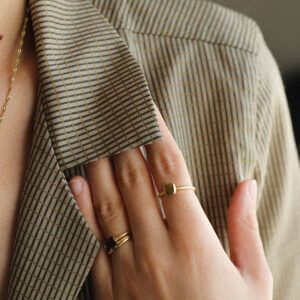
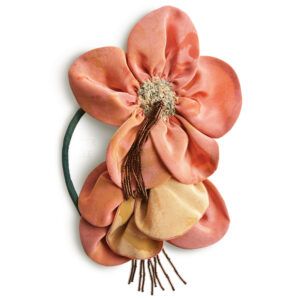
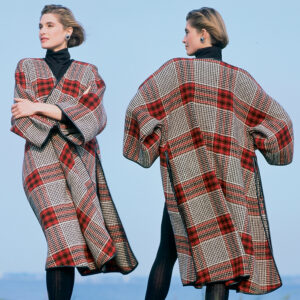
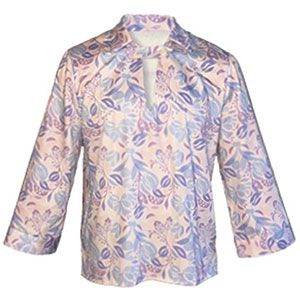
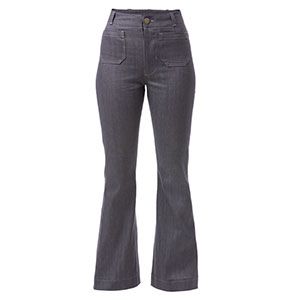
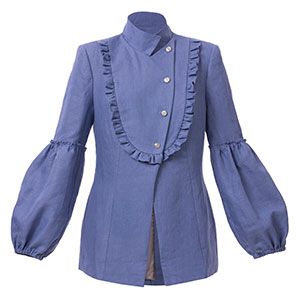
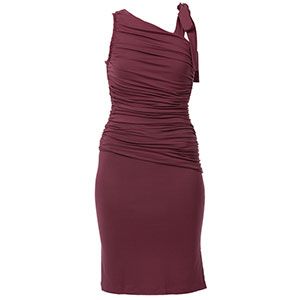
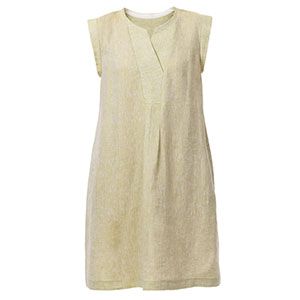
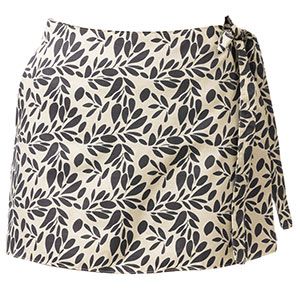
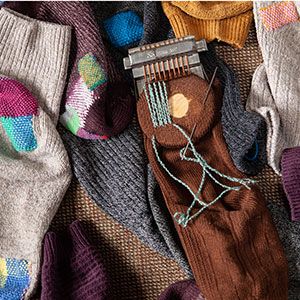
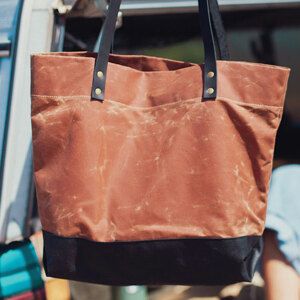
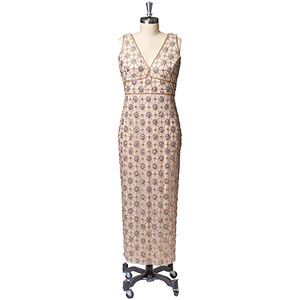
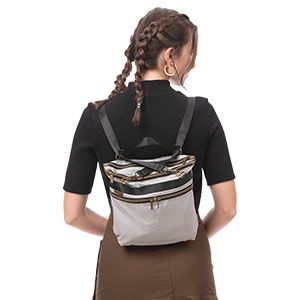
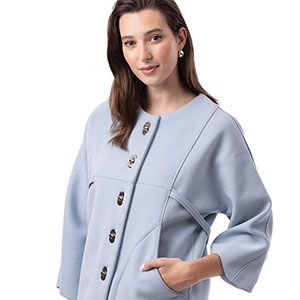
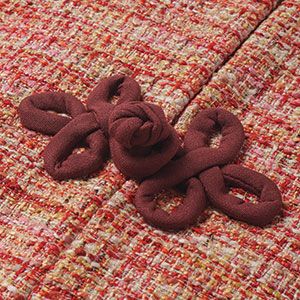
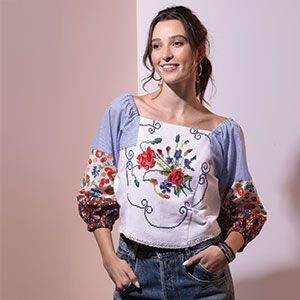



Replies
I've never seen this pattern before but took a look at it online. I'd try making a smaller size. How much ease is there in the waist and hips? If you could go down a couple of sizes and still have enough waist ease to pull past your hips that is a simple fix. If not you could more easily add a smidge to each seam between waist and hips than to alter it anywhere else. Just draw a line from the widest part of the hip to the top, so it adds width at the waist and tapers to nothing at the hip. Figure out how much you need to add and divide by number of seams and put half that on the seam allowance at each piece's side seam. It should come to very little and not be noticeable once it's divided up that many times.
Make it up in cheap fabric you don't care about until you get the fit you want. These things are hugely voluminous and maybe it's just not the right shape for you. Some things only look good on tall, thin people, no matter how much you adjust the fit. I'd join those front panels into one long piece for the fitting garments, no point in cutting and stitching those extra seams. Don't worry too much if they get off grain for the trial pants. Just use pins or pattern tape (removeable from the tissue paper) to hold them together at the stitching lines eliminating the seam allowances and cut as one piece. Good luck and let us know if you can redo these to your satisfaction.
How about making a tuck all the way up in the center of each piece? Say a half inch tuck straight up? You could just pin all the way up and try it on that way to see if it helps. That way you leave the side seams alone and preserve the shape while eliminating some of the bulk. If that works, then you can recut the pieces. rjf
Linda, I've made those pants--twice, I love them so much! I'm 5'6", and they are the right length in the leg for me (they end just above my ankles, giving a slightly cropped effect), but were way too long from the crotch to the waist. I take out probably 3 inches there to get the crotch length correct. Note: if you make an adjustment like this, you have to figure it out before putting in the pockets).
For all the generous ease in the leg of these pants, the waist and hip areas are pretty trim, at least in the size I made (I think I used a small, though I probably measure between the top of small and bottom of medium in the hip and waist). Linda Lee advised using small, and I think she was right. But the waist just makes it over my hips, so sort this area out before taking in any seams there.
For someone of your height, you might consider cutting that center panel as one long strip, rather than the 3-part panel the pattern provides. There are two reasons for this. One is that those horizontal seams cut across you vertically, and chop up the line of your leg. The vertical seams, on the other hand, have a lengthening effect. A couple of the other Threads editors have these pants, and the shorter women always leave out those piecing seams. You'll need more fabric for the layout, but not that much more. The other reason for omitting the piecing panels is that the horizontal seams add extra body to the center panel, and tend to make it want to spread outward, rather than hang softly. If you want a less voluminous look, leave them out and the panel will drape more vertically.
Next: be sure to use a very drapable fabric. I've a pair in soft Tencel twill, and one in a wonderful rayon print (Batik Butik--excellent fabric for this pattern). The rayon is perfect, the Tencel is just about as heavy as I'd want to go with this design. If you still want to remove some fabric, you can tuck out some in the pattern before cutting, just make sure the waist and hips still fit. I think I'd probably take width out of the back piece (since it's a single, very wide section), and them some from the side panel, and possibly a bit from the center panel. Those front panels aren't really tall that wide at the waistline, so you don't want to reduce them too much--they might not fit, and it could look a bit disproportionate if you make them to narrow.
Have fun! These pants are an important staple in my spring-summer-fall wardrobe, and I'd wear them in the winter, too, if I found just the right fabric (a soft wool crepe could be nice, actually).
Carol
Thank you to all for you thoughtful replies. Sounds like I have a bit of personalizing to do. I'll make it work because I too really like the style. I'm petite all ways, height and weight and also thought that maybe this wasn't a style for me, but Carol's example of smaller women wearing this pant is encouraging. It will be a while before I tackle this project (sewing takes a back seat to studying and working full time)but I will post when successful! Thanks.
Go for it, Linda! And bear in mind that once you've rigged up the pattern to fit, the sewing is very quick. The style is surprisingly flattering on a variety of shapes; I'm a bit on the pear-shaped side, but overall fairly thin; others I've seen wearing these successfully are more of a classic apple shape. I find that they work best on me if I keep the top half pretty streamlined--fitted t-shirts or turtlenecks, so I don't look huge or overwhelmed all over.
Carol
Dear Carol,
I've been reading your replies to people and and wanted to thank you for sharing your knowlege. They are so thoughtful and informed. I don't have any friends who are sewing garments, only quilters it seems and I really enjoy these forums.
Thanks, Nancy
My pleasure, Nancy. I haven't had a nearby sewing friend in many years, and did most of my sew-talk via long distance to my mother, until I found my way to Gatherings (years before I was a Threads editor). I now have fellow enthusiasts at close range on an almost daily basis, so I'm pretty spoiled. On the other hand, I'm a whole lot more self-conscious about uneven hems, facings that won't lie down the way I planned, or crooked topstitching, since everyone I work with will actually notice!
Carol
Dear Carol,
I am a perfectionist and one thing I am learning is that if I expect a little less from myself I enjoy my sewing more. Somewhere I read, probably Threads, that if I expect to improve a little every time I sew I'll sew more and enjoy it more and I will sew better!!! Thread is one of the best magazines around. I am a landscape designer and I really appreciate the layout design aspect of Threads. Few magazines are so visually beautiful and it really adds to the reading pleasure.
Nancy
Nancy,
We're glad you enjoy the magazine and find it inspiring. I agree that it's a lot more fun to sew when you're not also being a hard critic of yourself. I have lots of approaches to sewing, lately: sometimes I do things that are quick, easy and provide immediate gratification. These are great warm-ups. And sometimes I want to dive into a more complex project, one that includes a technique I haven't tried before, or calls for a fabric that's new to me, or requires more involved pattern adjustments. For my own sanity (and to be realistic about time, since I have very little time to sew), I really try not to pile up too many complications in any one project--otherwise I'd never get anything done, I'm afraid! So if I want to experiment with a new embellishment or construction technique, I'll try it out on a pattern that I know fits. One other way to increase the fun and decrease the stress if to try out patterns on inexpensive fabric first. You might end up with a good garment, but if you don't, you haven't invested a lot, and you'll have learned a lot about the project along the way.
Carol
I too, have started to mix easy patterns with harder, it really is more fun to actually get a project fiinished! I have been struggling for the last year to make perfectly fitted pants, so while I spent lots of time sewing I didn't get a whole lot to show for it. I have readded skirts to my wardrobe because they are easy to fit and sew.
Nancy
This post is archived.